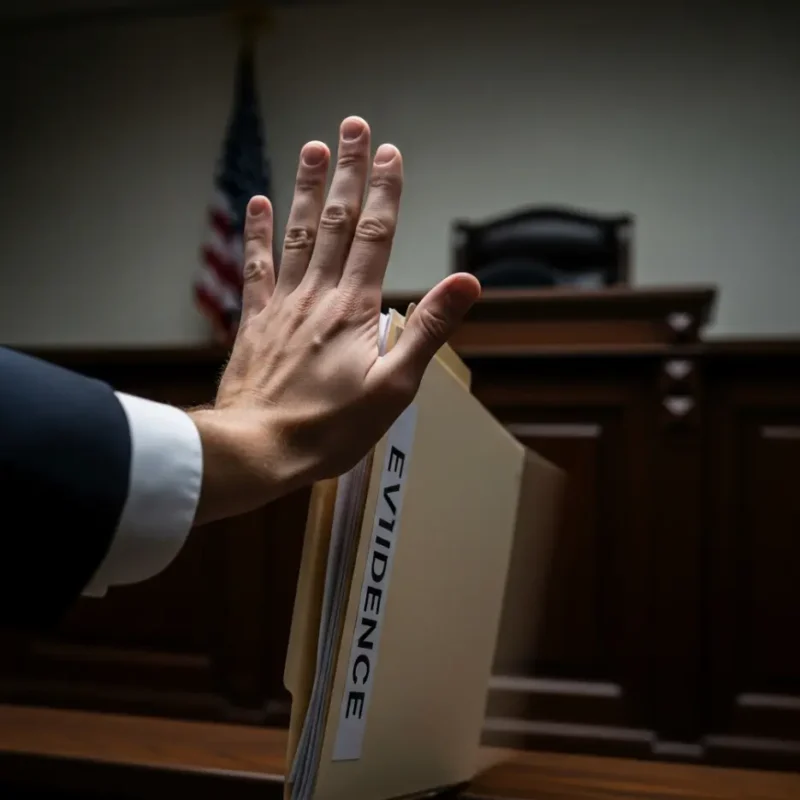What Is the Exclusionary Rule?

In criminal law, protecting individual rights is just as important as prosecuting crime. To ensure fairness, courts in the United States apply the exclusionary rule, a principle that prevents the use of illegally obtained evidence during trial. This safeguard is rooted in constitutional protections, particularly the Fourth Amendment.
Simple Definition
The exclusionary rule is a legal principle that bars evidence collected in violation of a defendant’s constitutional rights—such as unlawful searches or coerced confessions—from being used in court.
Real-Life Examples
- Unlawful search: Police search a home without a valid warrant and seize drugs. The drugs cannot be admitted as evidence.
- Illegal wiretapping: Recordings made without a warrant are excluded from trial.
- Coerced confession: A confession obtained through threats or without Miranda warnings is inadmissible.
- Unlawful traffic stop: Evidence found during an unconstitutional stop may be suppressed.
Importance of the Term
- Protects constitutional rights: Ensures that law enforcement respects due process.
- Deters misconduct: Discourages illegal searches, seizures, and interrogations.
- Promotes fairness: Prevents convictions based on unlawfully obtained evidence.
- Balances power: Holds government actors accountable for violating rights.
Exceptions to the Exclusionary Rule
| Exception | Description |
|---|---|
| Good faith exception | Evidence may be admitted if police reasonably relied on a defective warrant. |
| Inevitable discovery | Evidence is allowed if it would have been found legally anyway. |
| Independent source | Evidence obtained independently of illegal conduct may be used. |
FAQ
1) Does the exclusionary rule apply in all cases?
Primarily in criminal cases. It usually does not apply in civil trials or administrative hearings.
2) What constitutional amendment supports this rule?
The Fourth Amendment, which protects against unreasonable searches and seizures.
3) Does the rule apply to state and federal courts?
Yes. The U.S. Supreme Court extended it to state courts in Mapp v. Ohio (1961).
4) Can illegally obtained evidence ever be used?
Sometimes, under exceptions like inevitable discovery or good faith.
5) Why is the rule controversial?
Critics argue it may let guilty defendants go free, while supporters stress it protects rights and deters abuse.
Closing
The exclusionary rule is a cornerstone of American criminal procedure, ensuring that justice is achieved lawfully. By excluding evidence obtained in violation of rights, courts uphold fairness, constitutional protections, and the integrity of the legal system.






